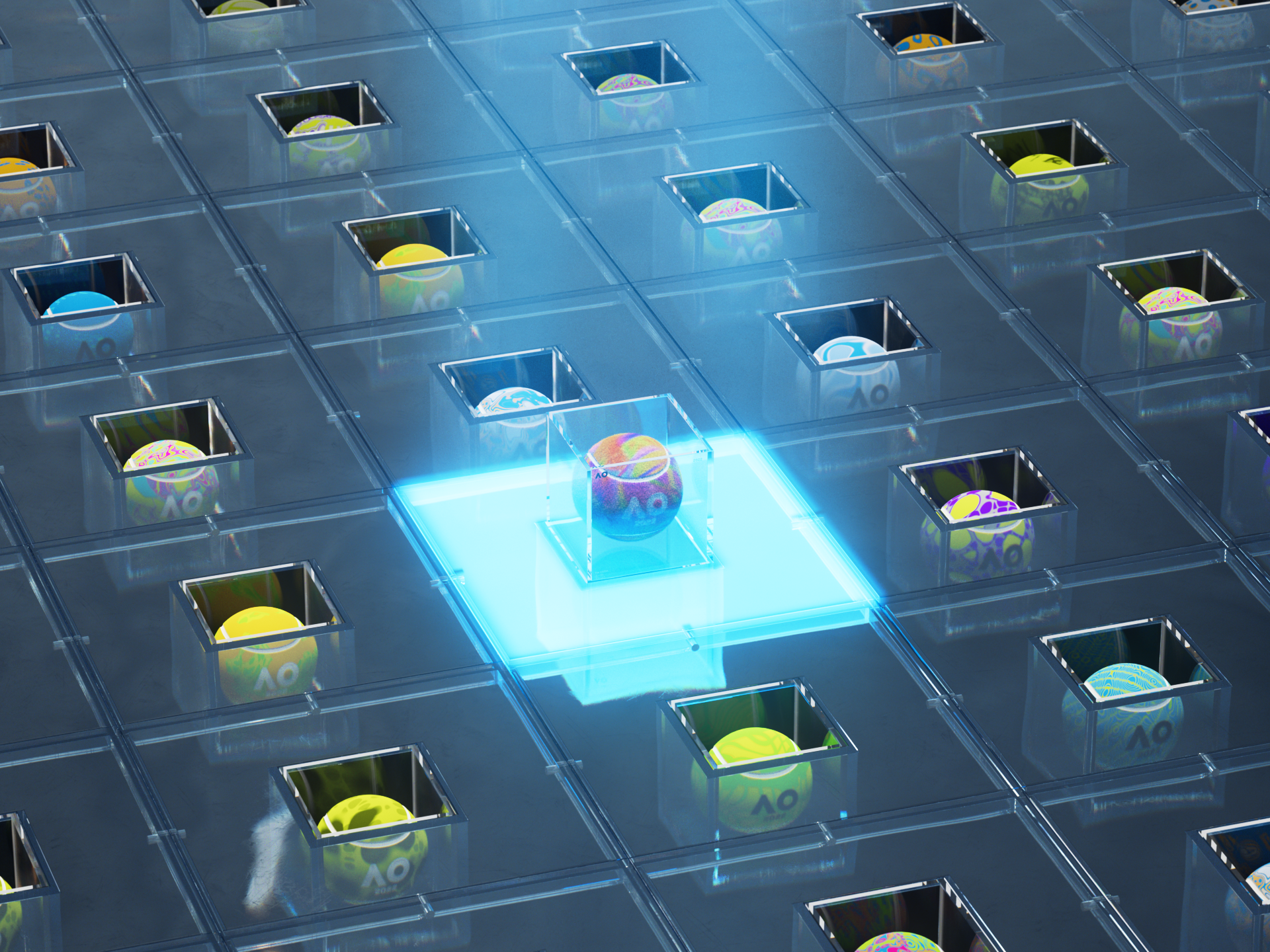
- The Australian Open sold NFTs linked to its metaverse tournament, which ran parallel to the live event.
- The price of bids for the NFT where champion Rafael Nadal's winning shot landed has surged more than 4,000%.
- The AO Art Balls have seen $4.4 million in trading volume since January, according to OpenSea data.
Australian Open champions Ash Barty and Rafael Nadal weren't the only winners from the tennis tournament, which played out in a dedicated metaverse at the same time it did in Melbourne.
Some NFT buyers in the Grand Slam contest's AO metaverse scored gains after the stars' historic victories at the weekend, though they might regret selling their pieces too soon.
Rather than foam fingers or match programs, fans attending matches in the metaverse had the chance to buy an AO Art Ball non-fungible token, or NFT, linked to a specific individual part of the court.
The NFTs were generated before the competition, and released through a public drop where users could pay to mint an AO Art Ball from the 6,776 available.
After each match, the AO metaverse team collected data on where the winning shot in each real-world contest landed, then assigned this to a particular NFT.
The virtual memorabilia proved more popular than the Australian Open team expected, according to Ridley Palmer, metaverse and NFT project manager for Tennis Australia.
"At no point did we anticipate we'd sell out the public drop in three minutes," Palmer told Insider. "As a result, we've set the bar extremely high for what NFT's can become in the future."
The metaverse — virtual worlds where people create avatars to explore and interact with others — has taken off in recent months, especially after Facebook rebranded as Meta.
As entry to the AO metaverse was free, the NFTs provided a way to mark a visit. The crypto assets represent a digital item such as an image or in-game item, whose ownership is verified on a blockchain.
The AO Art Balls have logged over $4.4 million in trading volume since January, according to data from NFT marketplace OpenSea.
Now that the tournament has come to a close, the NFT collection has sparked renewed enthusiasm, as people scramble to see who has the winning points from the big matches.
On Saturday, 25-year-old Barty became the first Australian to win a home-ground Grand Slam in 44 years in taking the women's title. The AO metaverse shared a visualization of the data linking to the AO Art ball NFT on Twitter.
On Monday, offers on the AO Art Ball for Barty's victory shot were coming in at least 1,230% above the floor price. It's at more than three times the original price paid, according to OpenSea and Etherscan data.
The original minter sold the piece for 0.298 ether, then worth about $780. But the value placed on it by bidders has reached as high as 1.3 ether, or $3,335.
As for Nadal, the match-winning shot from his 21st Grand Slam final victory Sunday was updated Monday, and the price started to rise just hours later.
Since being minted, that NFT hasn't changed hands once — meaning its expected value has gone from around $700 to $8,438 in ether. The latest offer is worth 3.2 ether, almost 4,168% above the floor price.
But there's another factor buyers had to consider: high gas fees.
Gas fees — the cost of doing a transaction on the ethereum network — are added to the price to mint an NFT. They have been running high in recent months as NFT mania takes off.
Palmer said the AO team had considered whether the fees might put people off, but it saw ethereum as essential to attracting crypto natives.
"We're conscious that everyone in the NFT space is experiencing this right now, and can't wait to see where the space goes when gas fees are reduced or non-existent," he said.

